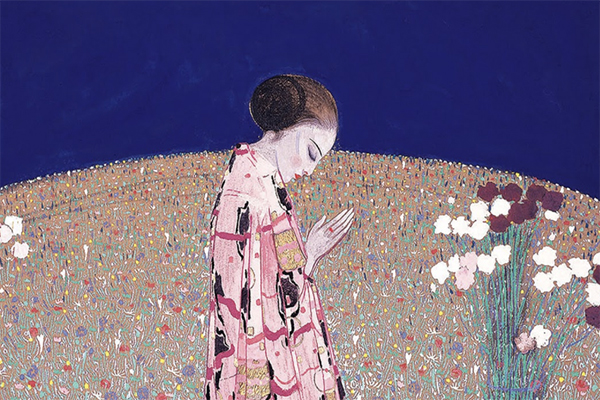
Perhaps someday I will look through the hundreds of books that I have accumulated during a lifetime of teaching philosophy and count the number of books that deal in some way with the mystery of love.
What philosophers have written about love interested me when I was an undergraduate student in the seminary studying philosophy, and that interest continued while doing graduate work. When I began to teach philosophy, I had the opportunity of choosing what course I would teach, and I made sure that I chose a course in which both the students and I would be able to reflect together on the mystery of love. I have never regretted that initial choice nor forgotten some of the insights I received many years ago.
I believe that philosopher Robert O. Johann, in his book Building the Human (New York: Herder and Herder, 1968, pp. 192), presented some wonderful insights into the mystery of love. After commenting on how we can become wrapped up in ourselves, Johann wrote the following:
“We had allowed ourselves to become harassed by care and anxiety, absorbed with our immediate preoccupations, oppressed by the bleak business of coping with every day. Then suddenly the veil lifted. Through a chance encounter, an unexpected kindness, the sheer radiance of a loving glance, all the more precious because unhoped-for and unmerited, Being beckoned to us. However momentarily, we caught a glimpse of the world beyond care. We came alive. Possibilities for existing in ways we had forgotten, in ways that made our past routines appear a barren desert — possibilities that summoned forth a creativity we did not know we had, that infinitely enriched our present by holding up a future without bounds — newly quickened our minds and hearts.” (pp. 74-75).
Being that beckons to us is God. The teaching of Jesus that we should love our neighbors as we love ourselves is revolutionary. In trying to love our neighbors, we probably should make sure that we love ourselves. To love ourselves need not involve pride or vanity.
In the Cursillo movement, there is an expression that is frequently used to encourage the love of self — “God does not make junk.” Recently, in a class at St. John’s, I mentioned that I thought it was wrong to dominate or manipulate or use people. A student asked why and I responded that each person is sacred and precious and from conception to death should be treated with reverence.
If someone admits to me that he or she hates someone, I counsel him or her to try and pray for that person. I believe that praying for others is one way to gain insight into the goodness of others. The prayer cannot only help the person being prayed for but can help the person praying. I believe that praying for someone who has in some way hurt us can enlighten our conscience. Our prayer can help us to see ourselves and the other in a new way.
Recently, at St. John’s University, a lady did something that offended me. Looking back on the incident, I would say that she offended my vanity. For a few days, I nurtured the hurt and began to fantasize about how I would correct her and point out to her what I found offensive about her conduct. I even noticed that I was relating to her in a new way because of my hurt feelings.
Then, I was reminded that this woman had a cross in her life that was very difficult to bear. I was ashamed of myself and saw my reaction as extremely petty. Praying for those who have hurt us in some way may never be easy but it is an activity that is related to everything we believe about Christ. I think it may be a special way of allowing the Holy Spirit, the Spirit of Love, to transform us.
In praying for those who have hurt us, we are participating in Christ’s redemptive action. A prayer for those who have hurt us is no small reality. Who knows what it might lead to in the one being prayed for and in the one praying? St. Augustine wrote that it is no little thing to gain the kingdom of heaven. I am thinking that prayer is no little thing. A prayer might be the means used by God to touch someone deeply.
By praying for someone who has hurt us in some way, instead of nurturing grudges or planning how to get even with that person, we are not only not sinning but we may be doing the most important action we can do to help the one who has hurt us.
Praying for “enemies” really is a revolutionary act. Isn’t that what Jesus did on the cross?
Father Lauder is a philosophy professor at St. John’s University, Jamaica. He presents two 15-minute talks from his lecture series on the Catholic Novel, every Tuesday at 9 p.m. on NET-TV.
